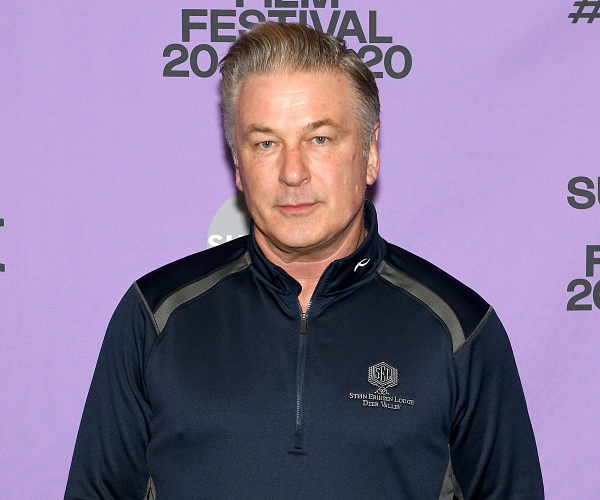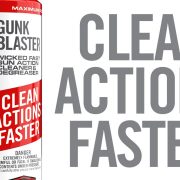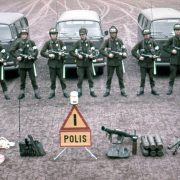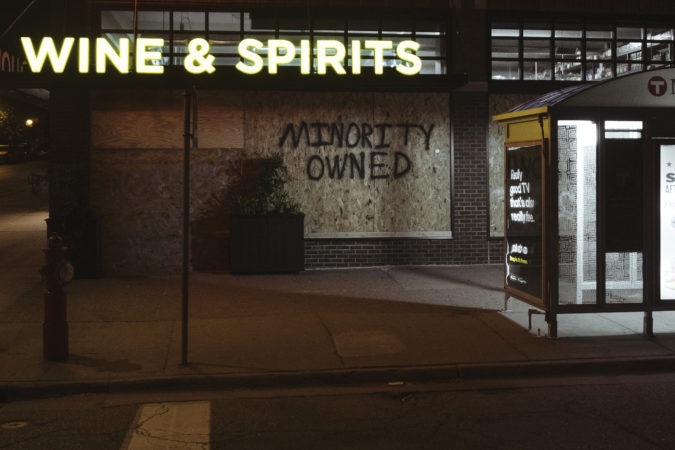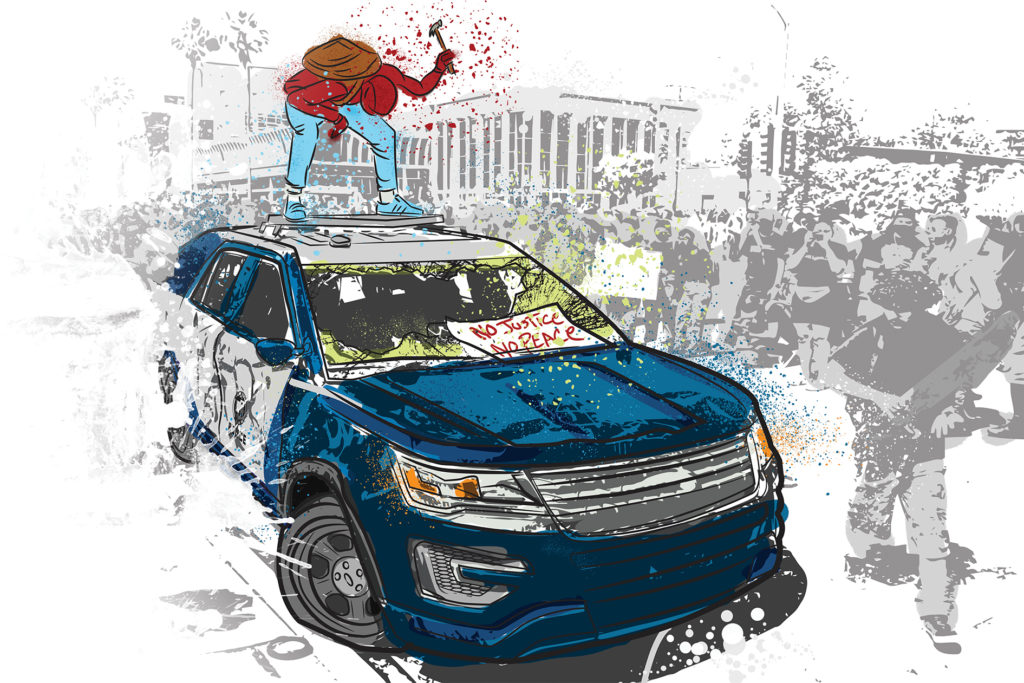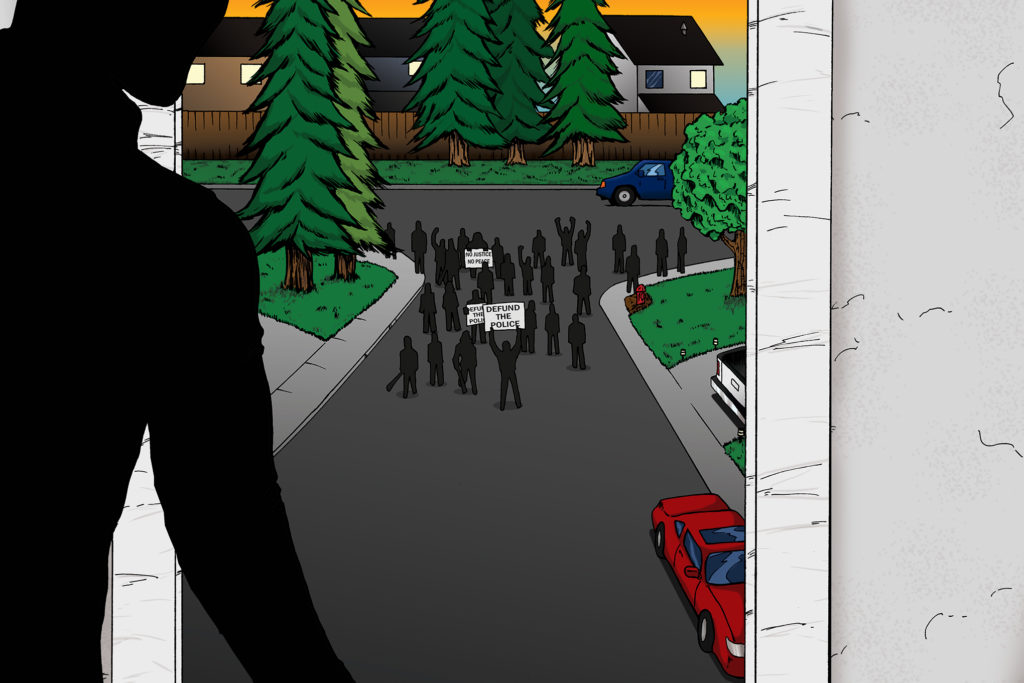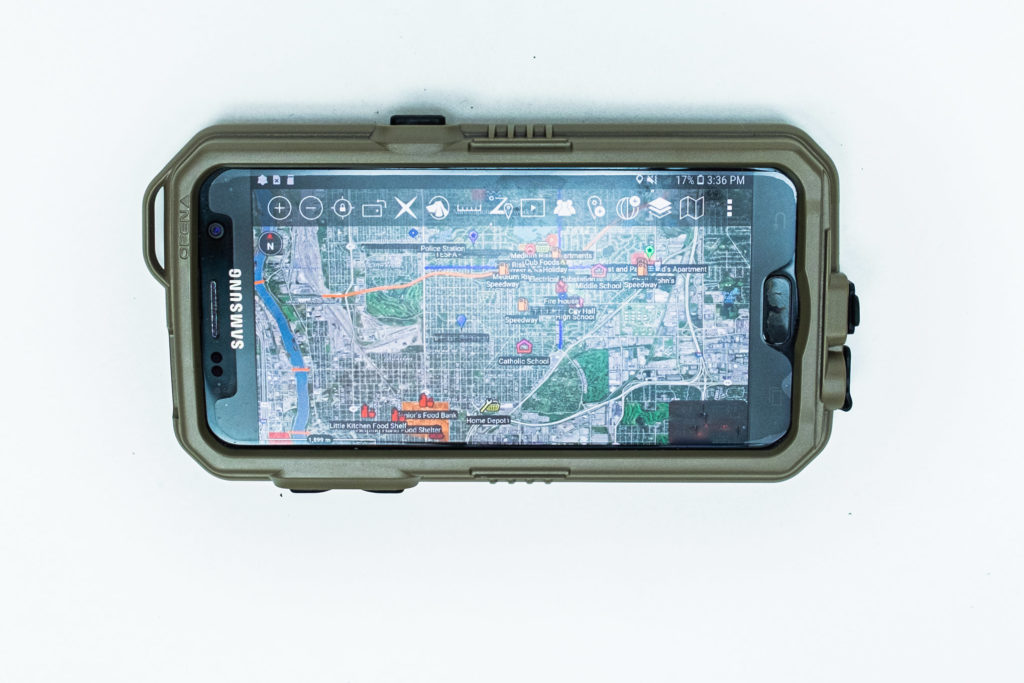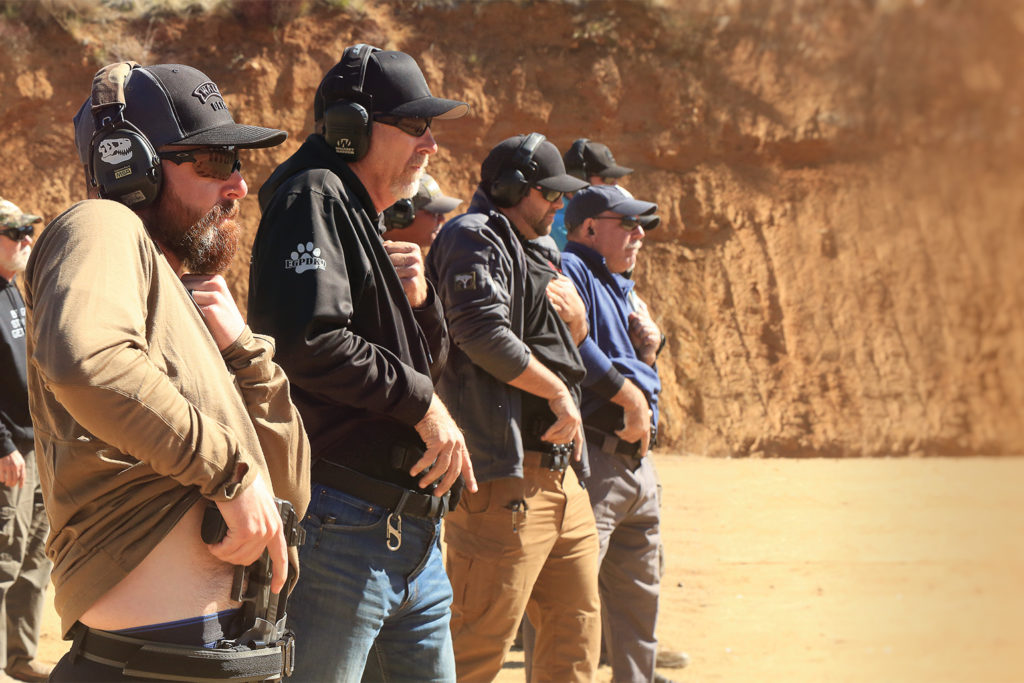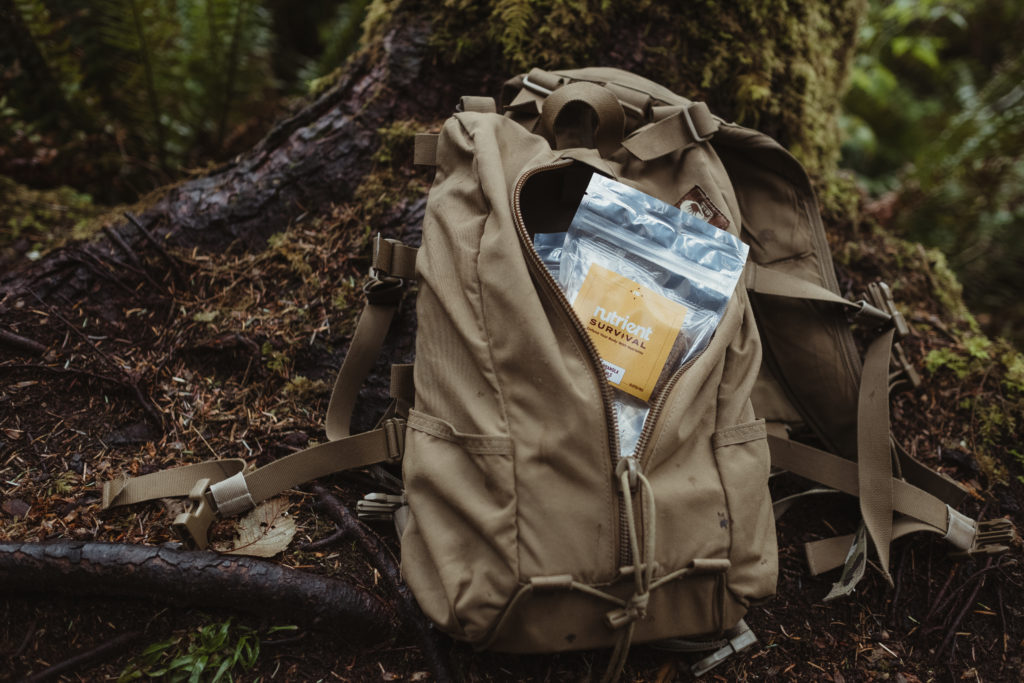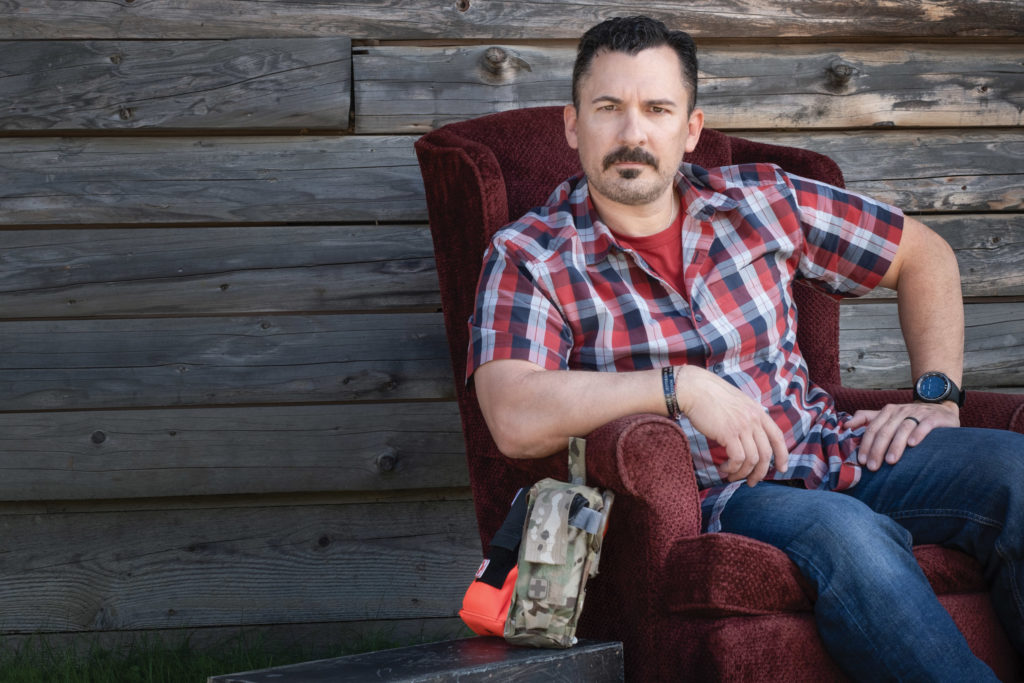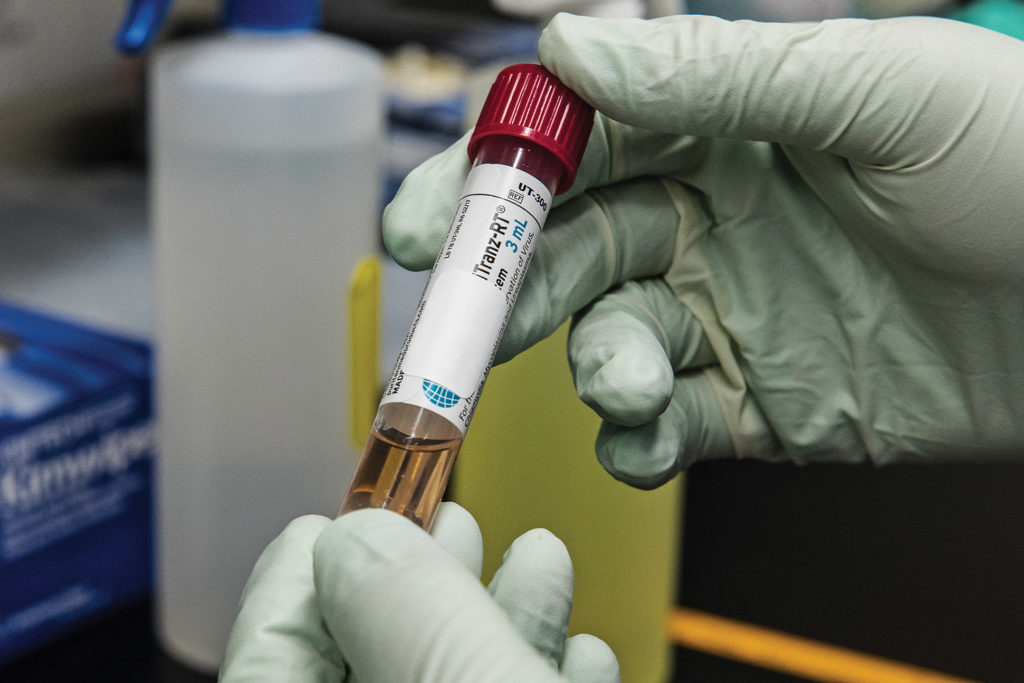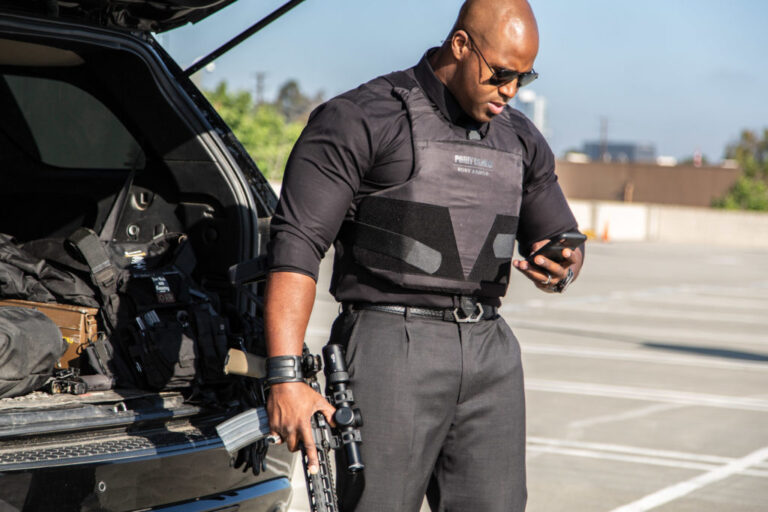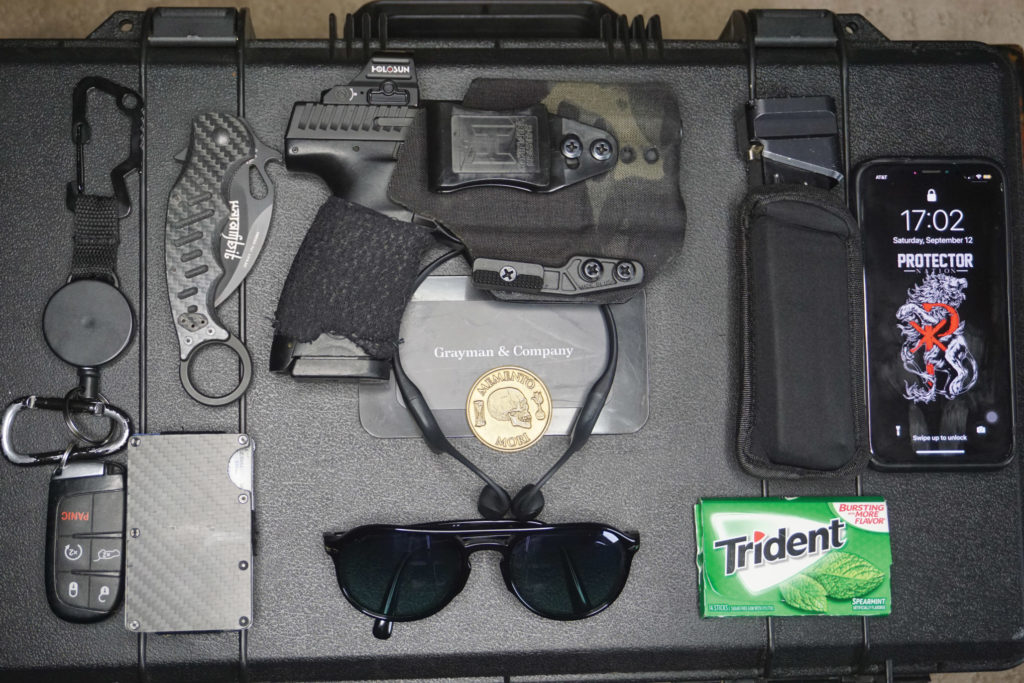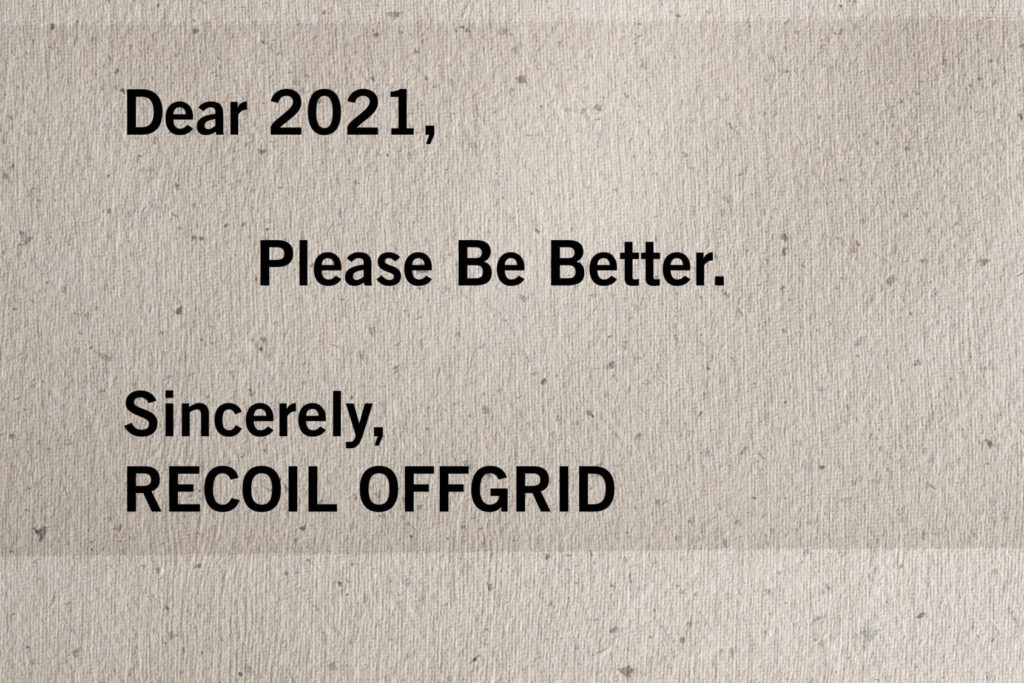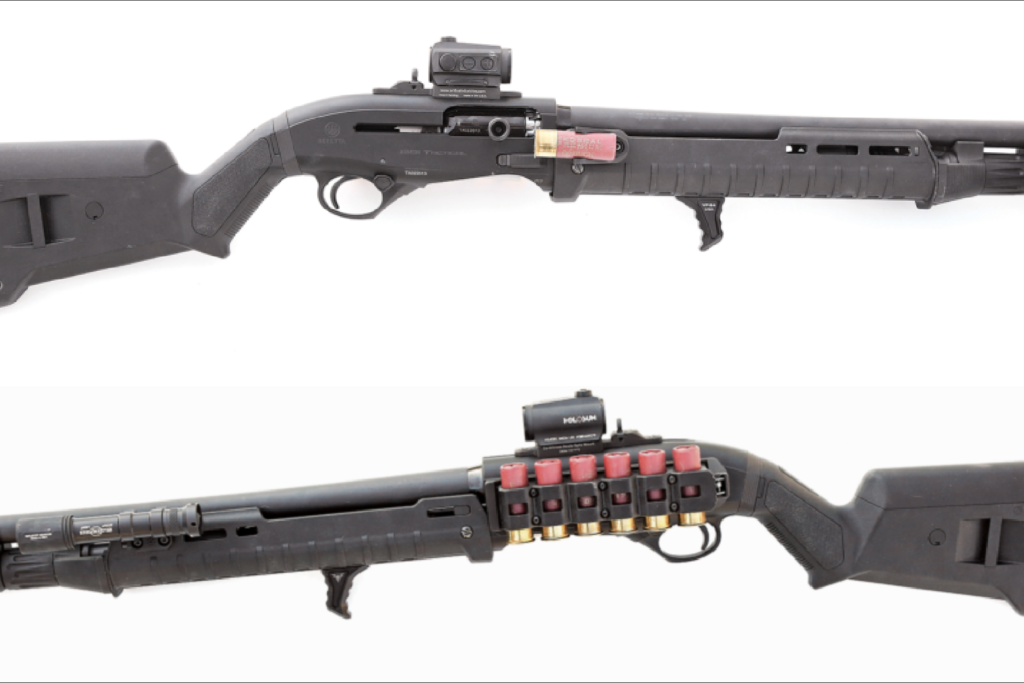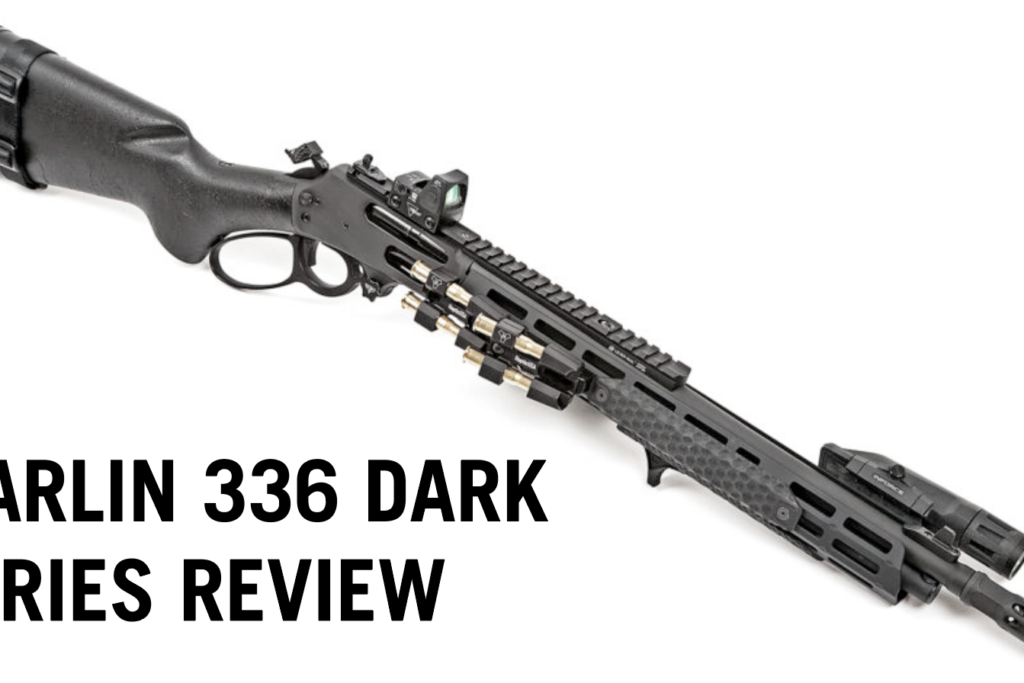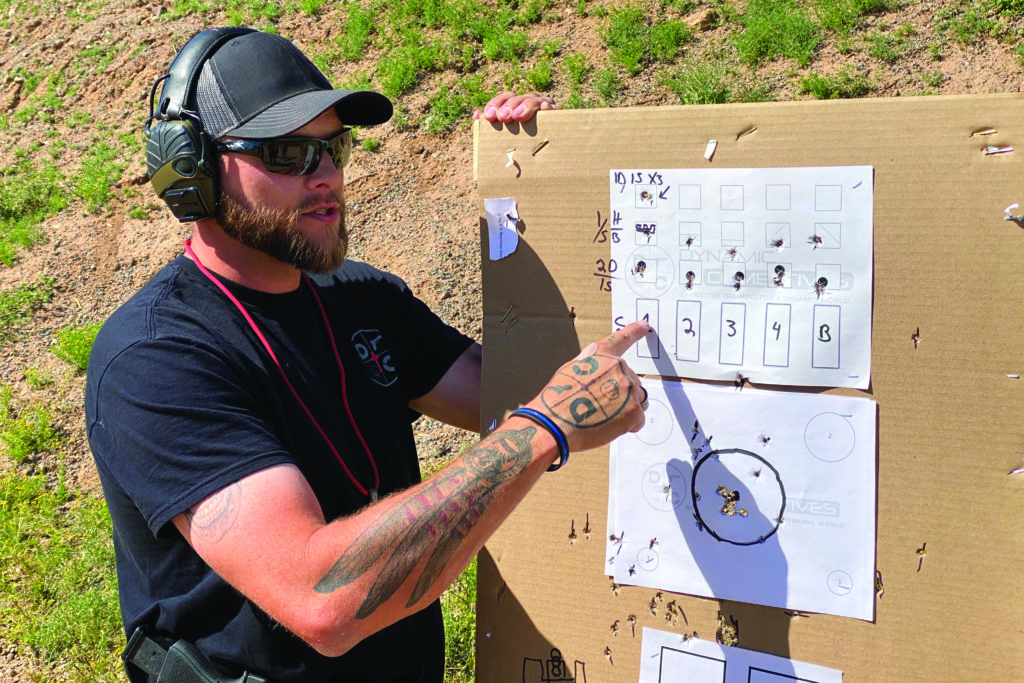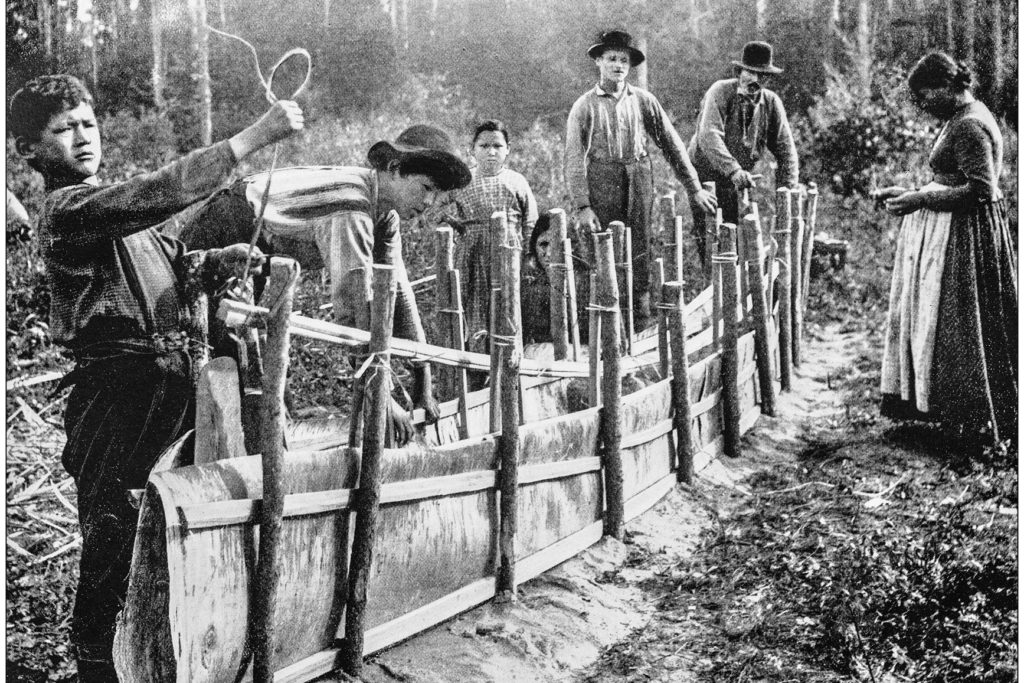China Bans BBC News Broadcasts in Apparent Retaliation
Alec Baldwin Wonders if Springsteen’s Politics Led to Drunk Driving Arrest
Nikki Haley: Trump ‘Let Us Down’
Real Avid Introduces The Foul-Out Gunk Blaster Cleaner/Degreaser
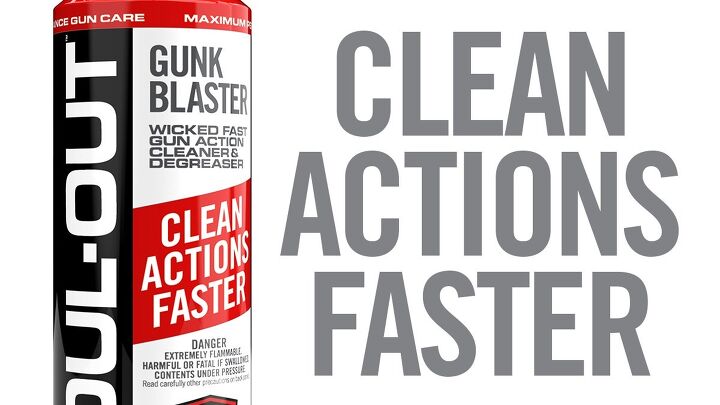
The post Real Avid Introduces The Foul-Out Gunk Blaster Cleaner/Degreaser appeared first on The Firearm Blog.
Concealed Carry Corner: Flight or Fight? A Breakdown of Possibilities

The post Concealed Carry Corner: Flight or Fight? A Breakdown of Possibilities appeared first on The Firearm Blog.
POTD: Traffic Control … Taken Seriously

The post POTD: Traffic Control … Taken Seriously appeared first on The Firearm Blog.
LASER TAGGING: Firearm Laser Engraving And Marking – An Introduction
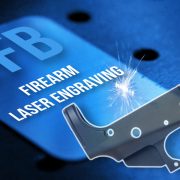
The post LASER TAGGING: Firearm Laser Engraving And Marking – An Introduction appeared first on The Firearm Blog.
BREAKING: CZ Acquires Colt Holding Company
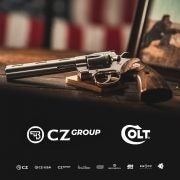
The post BREAKING: CZ Acquires Colt Holding Company appeared first on The Firearm Blog.
Rapid Emergency Networks: Porch Vikings Amidst the Minneapolis Riots
As Americans living in 2020, we each are searching on our own for a defining moment. We all do this to some degree, either actively in the pursuit of grand goals, or passively, waiting for life to bestow some sense of meaning. We do this with events too, attempting to put into perspective what something like the death of George Floyd or the subsequent burning of the Minneapolis Third Precinct means for America. These considerations typically take place in the aftermath of such events, invariably influenced by pundits, politicians, and people seeking to control narrative. In the moment, however, neighborhoods came together to protect local businesses and their own homes — and spontaneous Emergency Networks spread across the city. As a Minneapolis native, this first-hand narrative represents the antifragility of the American people.

Whether in solidarity or for camouflage, many businesses marked their own properties with the same phrases that those…
CHAOS AND CONJECTURE
As the façade of public safety went up in flames to the sounds of chanting, the eerie nature of the moment didn’t have time to sink in. This wasn’t a nightlong siege of an embassy in a foreign country — this was home. A phone call interrupted. Was it another family member? A friend calling to check in? Or was it word of something new?
In the background, flames leaped from buildings and smoke plumes melted into a dawn skyline. For miles, the smell left a slight metallic taste in the mouth. It wasn’t recognizable, but it was familiar.
The city, this city, our city wasn’t the same in the morning air. All night we were monitoring, watching, and sending out patrols. Little did we know by the end of the week that we’d be convoying nursing mothers away from their homes to safety. Was this Minneapolis, or was it Mogadishu?
We were no longer measuring this event in hours, but days. The previous 24 hours we watched what started as protests turn into burning buildings and a form of looting that looked too relaxed to be anything but surreal. A man in socks and sandals stumbled out from the rubble of a smashed employee entrance with a carton of eggs, some cooking oil, and a half-eaten candy bar. With a casual air, he stepped around a barrier, chuckled at the hull of a burning car, and disappeared into the residential streets. A few miles away, men with body armor and carbines sat inside cars in grocery store parking lots and outside apartments to protect businesses and the community.
Sorting through and qualifying the information escalated to a necessity, as rumors spread like wildfire through social media and news outlets. The white supremacists were coming to town — or was it the Black Panthers? Boogaloo boys or antifa? Believable? Yes, but not nearly as relevant nor immediate as the gas station burning at the end of the block. The National Guard was now using live ammunition? A quick check with a friend in the chain of command said otherwise; another case of bad information reaching further and faster than fact.
It didn’t take long for rumors to breed distrust, with speculation spreading fear that some infamous “them” could be coming to town to take part in the trouble. But how could we verify who they were or where they were coming from, or even where they were going? And then there was the matter of who we were. Were we a group of concerned friends? A rescue operation? The latest evolution of the neighborhood watch?

A caravan of impromptu parades streamed across the city, through neighborhoods, blocking traffic. The closer you got to…
On the couch rested a plate carrier, hearing protection, and a rifle. Half of the dinner table became a command center, busy with communication on every channel, texts, phone calls, live video, and each social media platform a blur of new information that had to be evaluated.

Across the street from the 3rd Precinct, a family owned liquor store burned throughout the night as its merchandise was…
When it all started, we simply called each other. Some of us were friends, others family, some as distant as former colleagues or a valued professor from years ago in college. A former coworker had left town, but he was monitoring the police chatter in our area through a scanner. Establishing the network was spontaneous. What came next couldn’t be. We had to systematize our communication — quickly — before it became too jammed up to do any good.
DECENTRALIZATION
Nicholas Nassim Taleb, in his work Antifragile, observed that highly centralized organizations were prone to collapse when the head was cut off from communication. The world of Special Operations long ago incorporated this principle by maintaining an unwritten standard that each member of the team must be capable of performing the duties one or two levels above and below themselves. In emergencies, situations will escalate from bad to catastrophic when arguments over leadership take precedence over the threat at hand.

As the looting continued, it became more and more banal. Soon windows were smashed just for the hell of it.
An emergency network stands apart by defining itself primarily around an area of operations, not a rank structure. It’s not an organization that needs hierarchy, but a team that requires cohesion. Spread across Minneapolis, each person represented a node, a point to gather and cross-reference any information that popped up. Some brought unique expertise — a retired police officer, a member of the National Guard, a nurse, another who was social media savvy. No bunkers, HAM radios, or bug-out Hilux imports in sight, all communication took place over cell phones and computers. By establishing various information-specific group text messages or chat rooms, we isolated pertinent, actionable information that could be shared across the whole group while limiting the noise of rumors and conjecture.
Next, we used tools like Google Earth to clearly define and disseminate where each person lived to determine key routes of travel and the greatest danger areas. People could drop a pin where they lived, and if they saw something first-hand, it could make its way onto the map. If a building started burning, it was shared with the group. As time progressed, various streets, roads, and highways would be blocked by police, protesters, or riots, and that’d determine how we’d get people out of a bad place.

Those looting the stores rarely looked like comic book villains. Many came just for the spectacle and went home with a…
When establishing a network as a crisis is in progress, the decentralized nature of the group begins naturally. By self-regulating the various streams of communication, the network prevents itself from getting too crowded, allowing the most pertinent information to stay on the top. By reserving phone calls for immediate threats, part of the team can get rest knowing that if they were needed the ringer would wake them up. Just as some streets set up shifts to keep watch over the neighborhood, so could the network look out for each of its members while some slept for the first time in 36 hours.
EVALUATING INFORMATION
For the third night in a row, the city burned with no end in sight. As the skyline began to give way to the gray of dusk, we wondered if tonight we’d see it aglow by fires in this neighborhood. The rumor coursing through the wires and waves of the city was that tonight the rioters were going residential, now that the police precincts had hardened their defenses and the businesses worth looting had been stripped bare. All day, pallets of plywood emptied out of lumberyards for boarding up gas stations, liquor stores, and churches within a 20-mile radius.

Some parts of the city were wholly abandoned by the fire department, where in others struggled long into the night.
A computer had been synced to relay text messages, as it took too long to type on a phone keyboard. A screenshot came in, this time a social media post: THE WHITE SUPREMACISTS ARE MARCHING SOUTH FROM NEW BRIGHTON. If that were true, it would be a problem. Could this information be verified? We didn’t care about who they were, only if the threat was real.
We had more information at our fingertips than we could handle. In order to turn it into OSINT (open-source intelligence), or actionable information, we needed a way to evaluate what came in. People flocked to Minneapolis, some for a chance to get in on the action, others to catch the spotlight for political gain, still more to protect property and people from the fires, or to watch what felt like history in the making. All the attention brought a spotlight and the struggle for it.
The battle over the streets was matched with a battle over the headlines. That distinction meant everything to those who lived where others fought. In the papers and across the web, people argued over who was starting the fires, or who was coming to town, but to us, it didn’t matter — we sent an armed escort to the home of a National Guardsman who was receiving threats. As the street violence continued to escalate, he’d been called in, leaving his wife and 1-year-old child home alone. Despite the curfew, they were quickly and quietly escorted to the safety of family outside the city.
TRIGGERS
It wasn’t the alarm of white supremacists on Twitter that drove us to action, but the reports coming in from government sources and confirmed by our own people on the ground. When rumors of threats began to spread, it became the responsibility of each person to verify what they heard and dismiss anything that couldn’t be confirmed. In this case, the National Guard was briefed on the expectation for the riots to move into residential areas, and we considered it actionable intelligence when multiple vehicles were spotted driving through without license plates. The previous days’ reports and videos floated across Minneapolis, depicting cars stripped of tags driving through in search of soft targets to quickly smash-and-grab them when the police were nowhere in sight.

From their porches, streets, and rooftops, citizens watched the chaos unfold, holding down their little section of…
The saying “trust but verify” pertains to more than just leadership strategies, especially for information that could qualify as OSINT. An emergency network remains flexible by operating with a decentralized structure, but it relies on a systematized approach to information and the responses. New information is sifted according to its credibility and then assigned triggers that warrant specific actions. Social unrest seized Minneapolis in a matter of hours, so the establishment of an emergency network was both organic and reactionary. However, once the channels of communication were established, it was time to become proactive. This meant forming an amalgamation of tactics and standard operating procedures. With people remaining in their neighborhoods, sometimes minutes and sometimes miles apart, we needed to know exactly when it was time to act and how to act.
As we tracked the movement of the riots, mapping out the locations of burning or looted buildings, we were faced with this question. So far, none of us had been immediately threatened. Our hatchets sharp, powder dry, and plate carriers loaded, our team was at the ready, but as the violence escalated, it stayed away from our doorsteps. Our greatest danger wasn’t a torch-wielding mob — at least not yet — but rather the weariness of endlessly waiting for a threat to manifest, hoping that we’d have the mental fortitude to make wise decisions.
Tangible triggers dictate appropriate responses. When someone identified vans without license plates roving around their neighborhood, someone outside of the danger area would drive to their location and provide security for the night. If someone needed food but couldn’t leave their home, another would provide a meal. In the event of a nearby fire, people with trucks were at the ready, fully knowing the hazard of entering a part of the city barred from police, medical responders, and even the fire department.

Maintaining the “Minnesota Nice” exterior as some marched to defund the police, others prepared for the crime wave…
By establishing triggers, each tied with predetermined response, the team moved from a reactive posture to proactive planning. As the unrest progressed, fear spread through rumor gave way to a systematized evaluation of information. This evolved further to make room for the network to look for ways to improve our position, instead of waiting for bad news to come home.
AFTERMATH & LOOSE ROUNDS
In the weeks following the riots, after the fires had long gone out and the smoldering wreckage of businesses began to assess how or if they could rebuild, some looked to politicians to save them from the aftermath. Our network, however, remained in place to look after our own. No one was coming to save us, and this was our home. This city was ours, but its eyes had grown wide with suspicion as it questioned who could be trusted. Neighbors debated who started the fires or looted local businesses, and the machine of media turned its attention from reporting on what it saw to arguing over which politician was to blame.
Behind the scenes, men and women stood up to look after each other, not by obligation but by choice. And it was that conscious decision that set them apart. No longer burdened by a search for meaning, they had found theirs — not in trying to identify victimhood, but to act and make themselves more able to act. In Minneapolis, behind the politics and the posturing, these emergency networks still stand, defined not by what happened to them, but what they were doing when no one was looking.
Photography by Samantha Lauraina
[Editor’s Note: This article first appeared in RECOIL #52]
More From RECOIL and Offgrid
- In 2020, The Second Amendment was Alive and Well.
- Punishment for Good Behavior.
- How to Survive Economic Collapse.
- How to Set up a Plate Carrier.
- What if you become the target of Road Rage?
Related Posts
The post Rapid Emergency Networks: Porch Vikings Amidst the Minneapolis Riots appeared first on RECOIL OFFGRID.
Byron Rodgers: Experience is the Teacher of All Things
Estimates have put the number of new gun owners in 2020 to be somewhere over 5 million. In a time of growing threats to public safety and stigmatization of law enforcement, it’s finally dawned on many that protecting themselves and their family has never been more important. By the time you read this, the election will be over. No matter the results, increased instability will be par for the course. With the media, activist groups, and countless others fanning the flames of civil unrest, the next question becomes, who can teach you the skills to defend what’s important and the discretion to use them righteously? Guys like Byron Rodgers.
When you hear the term “executive protection” (known colloquially as EP), images might come to mind of some shredded guys with pressed suits, radio earpieces, and mirrored sunglasses following around celebrities who can afford the luxury of private security. Sure, Byron checks those boxes, but his résumé goes beyond protecting wealthy clients and teaching others who want to enter the private security industry. Author, veteran, podcast host, consultant, trainer, and creator of programs such as the Hard Skills Intensive and Protector Symposium are just some of the titles that make him as academic as he’s enthusiastic about helping everyday people help themselves.
The increased risks in our world have convinced many that being self-reliant isn’t only smart, but also imperative. Byron made it his mission to teach citizens from all walks of life how to sharpen the survival instincts that are part of everyone’s DNA. Think of him as part motivational speaker and part Roman general. We spent some time getting to know what motivated Byron to turn the skills he’s honed during his executive protection career into programs accessible to the average citizen.
RECOIL OFFGRID: Tell us about where you grew up.
Byron Rodgers: I was born in the Bahamas and grew up in Washington state. I spent the summers with my father in the Bahamas spearfishing, swimming, and doing all the island stuff, but I’d spend the winters with my mom in Washington, so I had a hybrid situation growing up. The Marine Corps brought me to Cali, and I opted for the infantry as an 0351. Then, from, there did my two deployments to Iraq.
In my spirit, I knew I was going to do what I ended up
doing in the executive protection industry, so I followed that inner voice. About three months before I got out of the Marines, I was working as a bouncer and was bussing tables just trying to be a good dude. This guy, Luke Agajanian, who became a buddy of mine looked over and told me to get a couple different permits, give him a call in a few weeks, and he’d show me how to make a lot more money doing what I was doing. That was the beginning of my executive protection career. Next thing you know, I was at a job interview in Beverly Hills talking to a client and away we went.
What was your experience in the military like?
Byron Rodgers: I was in for four years. It was like juvenile hall meets Lord of the Flies [laughs]. These guys had just gotten back from the battle of Fallujah. I got really good training, and my big brothers taught me how to fight. My first combat experience was very surreal. We were launching the invasion of Haditha, and we were out there at 3 a.m. It was pitch black, and I remember I was staring at the city and the power to the whole city just shut off. As we got ready to invade, an Army unit flew past us trying to get into the city first. We tried to tell them not to cross because there was a mine field. They went by us in a Bradley and got blown up. I remember hearing this explosion and hearing these guys and the rounds cook off. I was thinking, this doesn’t even look real. I heard this voice inside me say, you don’t really know what real is yet, son. [Laughs]
I was thinking, just grab yourself by the balls as we shot APOBS up into the city, which are linear explosive charges that shoot out on a rocket in a straight line and blow a trench in front of you. After that, the tanks trailed in that trench, and we ran in behind the tanks and invaded the city. We were going house to house to the sounds of women screaming, babies crying, and rock bands playing on big PSYOPS speakers. It was unlike anything else I’ve experienced. I got hit by a number of different IEDs, shot at by snipers, and it was a good taste of war. I got rocked a few times real good and had like an out-of-body experience and thought I was dead.
What got you interested in executive protection?
Byron Rodgers: Upon exiting the Marine Corps, I was at a crossroads thinking about what I was going to do. I knew I was trained to hold a gun for someone, so I wondered what my options were. I could contract overseas or be a cop. Those were the only two things I knew of. There was this scary period of life where like I had to make a decision, which is why, with my school, I try to make it as easy as possible to get into the industry because I want to pay that forward. Honestly, it was really the grace of God. After working as a bouncer at a bar for three months I got picked up and put on one of the most frequently traveling details in the U.S. I was 21 years old at the time.
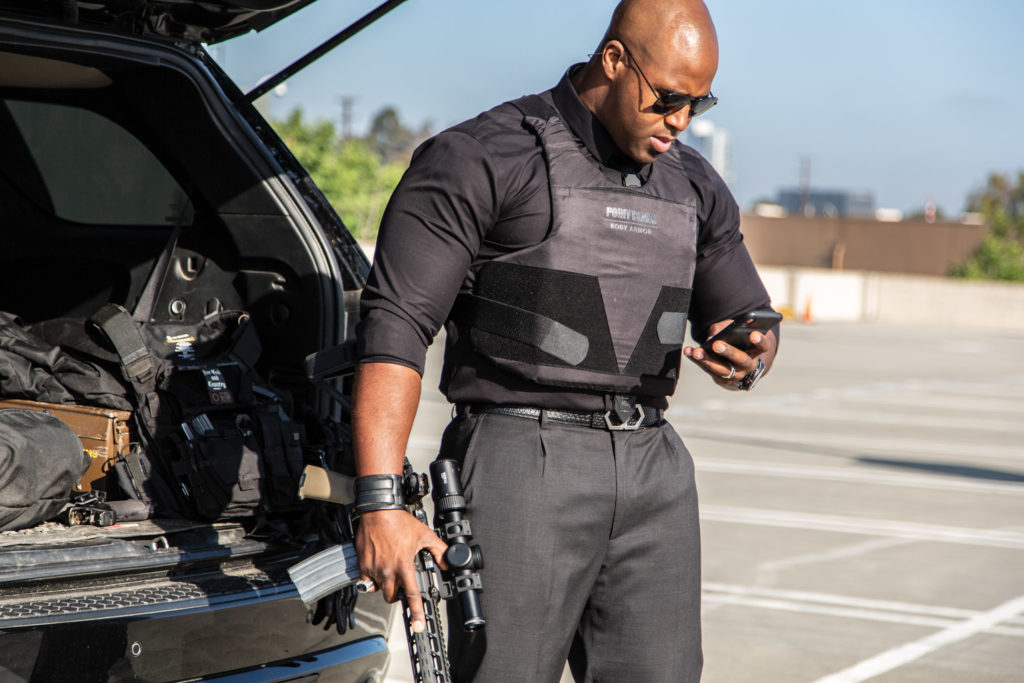
In this game you’ve always got to be ready, so Byron keeps all of his gear in the vehicle just in case he gets called…
When did you start your own company?
Byron Rodgers: During my first year, I was on the road a whole bunch. We were gone two to three weeks a month, and I needed a normal life. So, after doing that for seven years, living on private jets and stuff, I grounded myself with that client to only work for them when they were in California. I began working for about five local California companies. We call that “chasing the pager.” I was doing domestic security contracting where job offers would come and I’d sign myself up for the ones I liked. After doing that long enough to realize that I didn’t want to work for someone for the rest of my life and until I had enough of the right types of relationships and thoroughly understood the industry, I launched my company in 2017. Some professionals try to jump too quickly into having their own company, but personally it took me about nine years in order to do it effectively. Admittedly it was my second attempt, so I understand where they’re coming from.
What services do you and your company provide?
Byron Rodgers: We provide manpower and armed guard services for anything from various facilities all the way up to executive protection operations. We also do things such as penetration testing and have a pretty strong ability to get things done as far as cyber security and things on the tech side of the fence as well.
Do you work primarily with businesses, individuals, or both?
Byron Rodgers: Individuals, high-net-worth families, and churches/faith-based organizations for the most part, but it’s a mixture as well. We also have some businesses that hire us for guard services, which are more corporate. It’d be against the industry standard to name the names of my clients, but I can say I’ve worked the 2016 Presidential Inauguration, been in over 60 countries, and worked with every demographic that the industry has to offer. Everything from celebrities, politicians, royal families, A-list actors and singers, professional athletes, and even the transportation of valuable cargo all over the U.S. and internationally. I continued doing this for seven years straight, but now I still travel but I have more control over it.
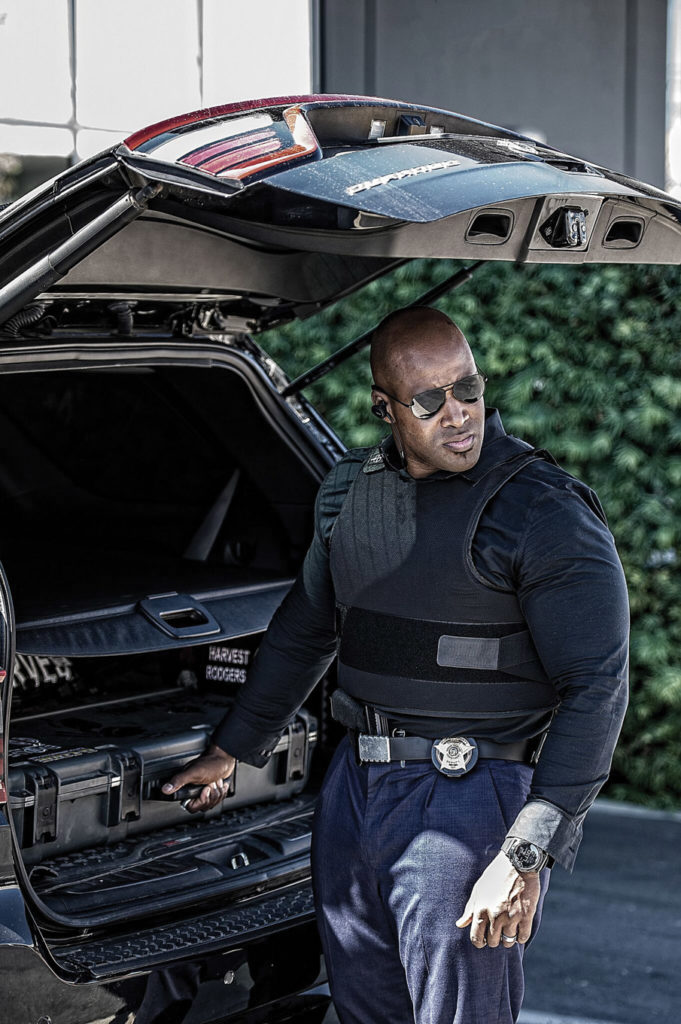
It’s important to make sure your skills and your gear are ready to work the full spectrum of the private security…
What are the main things your clients look for?
Byron Rodgers: It may sound a little counterintuitive, but professionalism and brand equity. For example, does the security product that we’re rendering add to their brand equity or subtract from it? Externally, as people are on the outside looking in, I notice the clients are very concerned with the look and feel, and the way they want to relate to the world. I find that to be one of the most anchoring principles when it comes to staying in a relationship with clients. The other thing is that I’m very relationship-centric. I’m focused on creating a long-term relationship with the client. As they change, I can change. Those things have really paid off.
Can you tell us about any close calls you’ve had?
Byron Rodgers: In the Dominican Republic, we had an issue where fake police were trying to pull us over. Fortunately, my local guys recognized it and stopped it from happening. They rammed the cop cars and pushed us around the barricade that they had set up for us. In that country, kidnapping is very common. Families even have kidnapping funds set aside.
Another time, we had a situation in the Congo where I found myself in a room full of local money. Piles of money, all over the floor, there were black bags full of it we were dealing with. We were trying to organize my client’s move and that cash. He was in another room. Our police escort was supposed to be guarding this place for us. There were no blinds on the windows, just these torn curtains. Our escort was looking at us in this room counting the money, and I was thinking, this is not good. The cops were staring at us, and people started gathering around the room.
We evacuated the client, but ended up leaving most of the money there. We had to do what we call “manning the rails,” fight everyone off the car, and get to the airport where the security was basically 14-year-olds with AK-47s. We rolled up to the FBO (flight base operations) and about every 30 minutes the FBO was coming up with new charges. Like, “Hey, you need to pay us the $250 airport tax.” And then 20 to 30 minutes later, there’d be another, like we needed to pay $250 for some other BS they’d make up. The pilot told them we weren’t paying any more money, they told us we couldn’t take off, and we were getting the flight handler on the phone.
This went back and forth for a while, and the pilot just said to buckle up because we were taking off. We just left, and they were on the radio yelling at the pilot and threatening to shoot him down and then he yelled back at them that they didn’t have an air force [laughs]. Boom, we were gone. That was definitely a situation where I was wondering what was going to happen. From the moment we realized there was trouble starting, getting to the car, fighting through the crowd, navigating to the airport, dealing with the airport, it was a wild ride for sure.
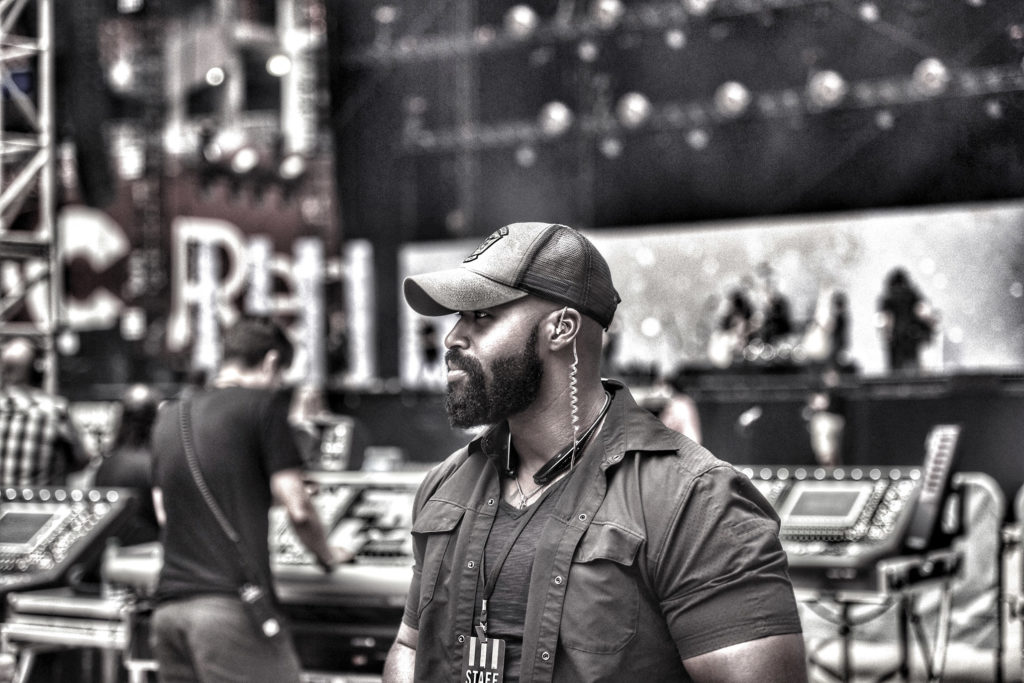
Understanding the micro and macro components of running venue security is foundational, but make no mistake, you’ll…
Has the executive protection landscape changed much from when you first started?
Byron Rodgers: Quite a bit actually. When I first got started, it was like you don’t get in unless you know someone. It was ultra-secretive and very tight-lipped. Things have changed exponentially because there’s been a ridiculous amount of growth because of things taking place in American culture. There’s more danger, there’s riots, human-threat scenarios with active shooters, so America is seeing more of a need for higher levels of security. Simultaneously there’s a war that’s been launched on law enforcement. With corporate America, you’re seeing a lot more companies bring a security element or department in-house. So, there are a lot more job opportunities where you can get full packages with stock options and make six figures. It’s a legit career field.
When I got in it you just happened to be that 1 percent like the Special Forces, NFL, or major leagues. There was no healthcare, no nothing. You did the job, got paid, that was it. You were an employee with a weird classification. Now, it’s so much more robust. There are huge companies that’ll hire you that do just executive protection and will find you work. When I started, you had to find your own clients. Networking can be done digitally as well now, and it’s a huge force multiplier for finding opportunities and getting inbound.
What do you think the keys to being successful in this industry are?
Byron Rodgers: Social dynamics, emotional intelligence, and the ability to plan/logistical intelligence. You need the social intelligence in order to navigate the environment you’re in, such as the client’s world. You have to navigate the “royal court,” which are the relationships around the client. You also have to navigate team life, the house staff, and the business owner or person who hired you. Handling any of those relationships incorrectly can be devastating — this is one of my favorite subjects to teach and one of the primary reasons I believe I’ve been successful. I’ve never been the biggest, baddest, or the best, but I’ve always been relationship-centric and have gone through pains to rigorously maintain humility to the best of my ability.
As far as growing your brand and achieving career success, managing relationships with other professionals is your number-one tool for attracting opportunity. Hard skills may save lives, but soft skills will keep you in the game. Understand the power of cooperation — it’s the key to unlocking a powerful team, not only in this game, but in life I believe. Every member must come from a place of selflessness putting the team over one individual because it makes all of you stronger. One really good guy by himself is actually a very weak target. We see this in nature — it’s the survival of the pack that’s actually the strongest and not necessarily survival of the fittest. Competence, trust, selflessness, and initiative are values that I believe make an amazing team, but like many things in life, these steps are simple to understand, but difficult to implement among multiple personalities.
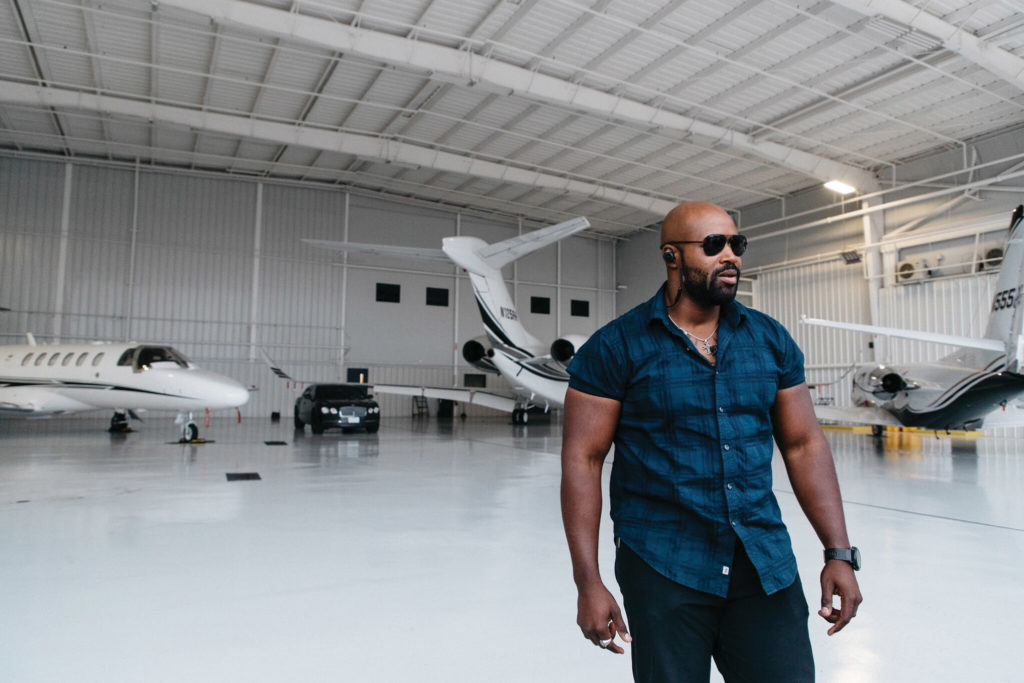
Flying in private jets and staying at seven-diamond hotels is part of the job test, but so is managing your ego. A good…
What do you think the most misunderstood parts of this profession are?
Byron Rodgers: We get a lot of really high-power dudes in this industry who think it’s going to be about combatives and tough-guy stuff. It’s really about social dynamics, customer service, and facilitating trips and movements in the safest manner possible. It’s extremely preventative. A lot of guys find it boring or insulting, like, “Hey, I’m not your coffee getter. Or, “I don’t carry bags.” Maybe in the State Department that works, but in the private sector you’ll just get fired, and they’ll find a guy who can carry bags and protect them.
If you’re with a high-power client with a lot of weight to throw around who has their own private jets, you might start to think you’re the man, but it’s not really any running and gunning. There are always the flavor-of-the-month guys who think they’re the most gangster EP agents ever and gonna change the world, but then they run out there and fall on their sword very quickly.
Byron’s EDC
- SureFire EDCL1-T flashlight
- Telescopic keychain keeper
- Shockwave Bluetooth headset
- Ridge carbon-fiber wallet
- FOX Knives carbon-fiber folding karambit
- Memento Mori challenge coin
- Apple battery pack case
- CZ P10 Hybrid (with black ACE bandage wrap to improve grip and protect clothing from wear and tear)
- Holosun 507C V2
- Shield Arms magazine extensions SureFire XC1 weapon light
- McKinaTec holster
- Soft universal magazine pouch
- Persol El Profesor Sergio LCPD sunglasses
- Grayman & Company box — I keep lots of tactical gear inside it on a daily basis (it’s actually the box they send your suits in every time)
Do clients often have expectations of you that don’t align with what you need to do to protect them?
Byron Rodgers: Clients frequently hinge in the realm of ridiculous and unrealistic, but possible for a billionaire. That’s another thing that causes a lot of stress and cognitive dissonance — some guys are like, “Who do these people think they are? Do they think I just have this in my back pocket? Like we can just make this happen; they can just change their minds, and we can just ruin all of our planning?” They get wrapped around the axle and lose perspective.
You’ve got to remember, we’re dealing with billionaires who can have almost anything they want, whenever they want. If you can’t deliver, even though they change their mind at the last minute, in their world there’s something wrong with you and they can replace you by tomorrow. So, you get inoculated when you’ve been in this game for a while to dealing with the whims of turning water into wine, spinning straw into gold, and doing a number of things that are not executive protection-centric. It’s stuff like walking the dog, putting the car seats in the car, or looking for certain types of foods at 1:30 a.m. To the client, when they want something, they might think that you’re there for that and they just tell you to go do it. If you’re there in a secure position, or you’re the only one, you find yourself having to make certain choices, moves, and plays sometimes.
You might be in a jet where the client is like, “Hey, let’s go to the Canary Islands real quick!” They’re excited. Well, you’ve got to be excited too even though you didn’t do any planning. You know that if there’s no place to stay, or the travel department can’t get this thing linked up quickly enough because you guys are landing in an hour, it’s going to be your fault by the time you hit the ground if this stuff isn’t done and the client can’t show up to a nice rental car and ride off to the hotel on par with their standards. You’re dealing with a fast-paced game, and you really separate the plan makers from everyone else. Those people who know how to flow with the client, not be stressed out, and field all these requests are the ones who succeed. We call it The Truman Show sometimes [laughs].
Where can people get formal training and education if they want to work in executive protection?
Byron Rodgers: There are many schools out there, but I believe my course is the most effective tool to educate and get someone into the field of executive protection right now that I know of. You can learn from the comfort of your own home; you don’t have to stop working. I’ll teach you executive protection, but also branding, marketing, how to do your résumé, etiquette, social dynamics, and professionalism relative to the industry. And then I teach skills like how to do walking formation, vehicle-mounted operations, how to work in venues, hotels, site-based operations, how to work on private jets, etc.
I take students through the executive protection curriculum after all the things I didn’t see at most other schools. Beyond that, they become part of the League of Executive Protection Specialists, which is my group of graduates who I do weekly Zoom meetings with that I coach, so you basically have an executive protection consultant for the rest of your career. We have a group who shares opportunities and are hiring each other, so it’s a very positive place that’s helped a lot of people.
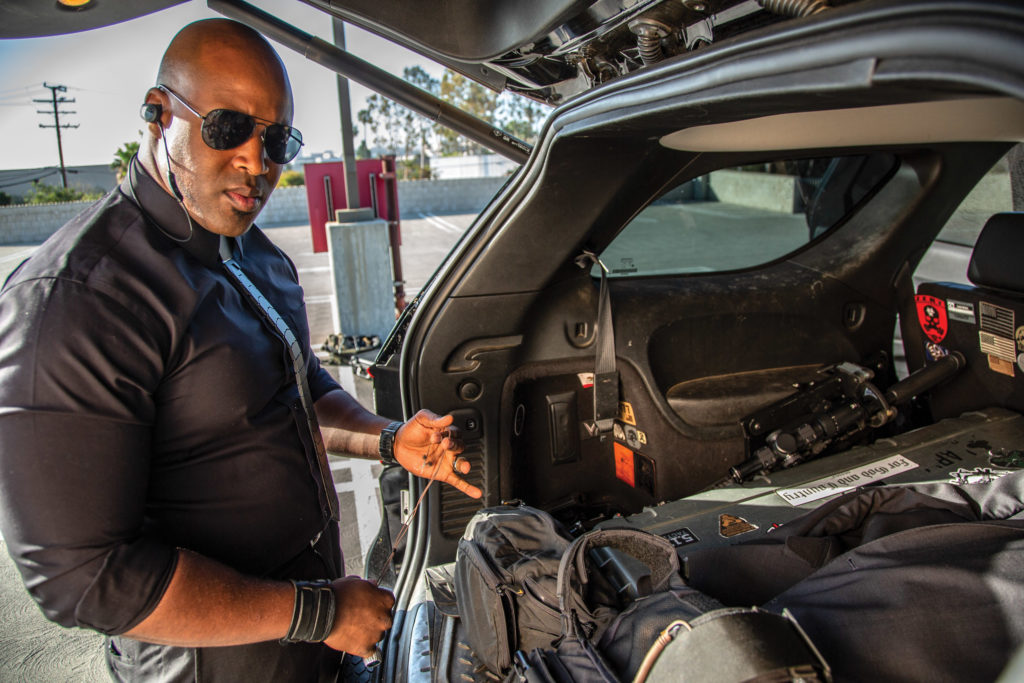
“I’m not the biggest, baddest, or the best … I’m just a man willing to fail in front of you while trying to…
If people are looking to hire someone for executive protection, how would you recommend they vet those individuals to make sure they’re legit?
BR: That’s very difficult because you might not know what to look for. If you don’t have the eye to recognize those types, it’s tough. I’ve run across so many clients that are relieved to have a competent team of professionals with them because they’ve had so many unprofessional people work with them in the past. When it comes to vetting people, there are a lot of imposters out there with a good song and dance who can make things look really pretty. I’d say talk to previous clients or employees — that’d be a good way to find out what they’re really all about.
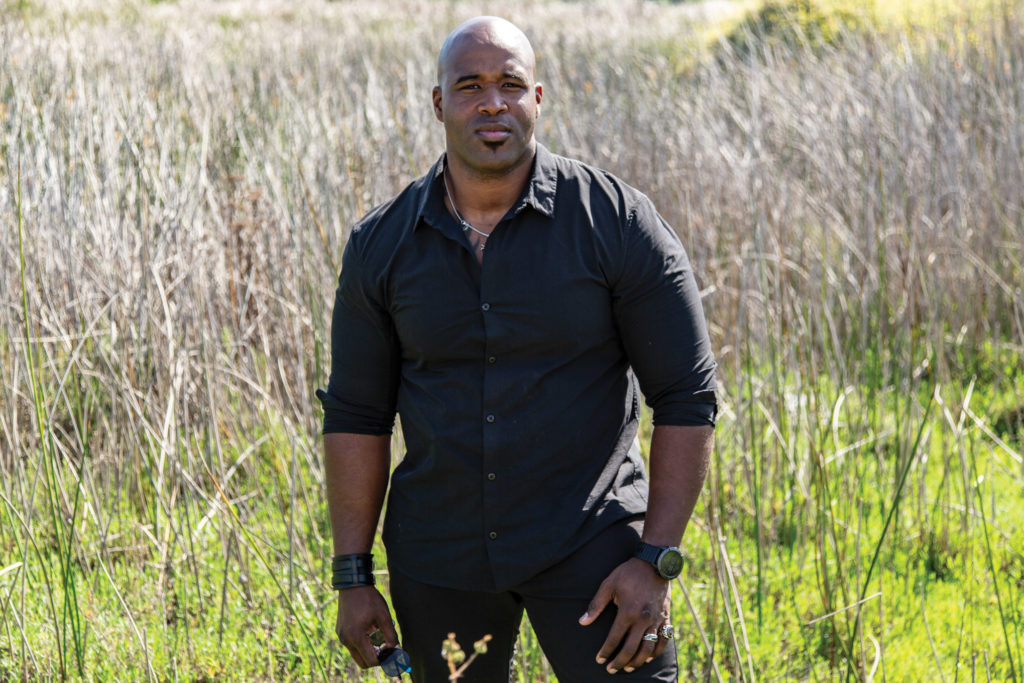
To those at the top of the game, the art of protection is more than just a job, it requires a lifestyle. How else will…
Tell us a bit about Protector Nation and Protector Symposium.
Byron Rodgers: The Protector Symposium series is giving birth to the Protector Nation. I see all the changes taking place in American culture and how you can get stuck in the middle of a riot, pulled out of your car, and beat to death. There could be an active shooter scenario in your corporate building or church this month. I see these incidents and tectonic plates in American culture changing. The goal with both of those brands is to help good people, regardless of occupation, to become more willing, capable, and prepared to deal with evil. It’s also about helping good people become more dangerous. I’m with Jordan Peterson’s school of thought insofar that a good man isn’t just a nice, sweet man. A good man is a very dangerous man who has it under control, has great discretion, and can be the backbone of a nation, his society, and family because he’s strong — that’s what I want to foster in the world. I want good people to be able to defend themselves. I want bad guys to think twice and be afraid of good people.
Protector Symposium events are going to take place throughout the year where we bring in trainers you can learn from. We have them speak on their techniques, but we’re also going to get into actual hand-to-hand, on-ground training that’ll increase your protection IQ in one event. That’s what the Protector Symposium is all about. The Protector Nation is the nation of people in the world who are naturally protectors. They are here to maintain order on our planet and bring on-scene accountability.
It’s not for tire kickers who just want to have fun. It’s for serious adults who want to learn skills as long-form education. It’ll almost be like an online university for protectors — you can get a Level 1 certification for completing stuff online, Level 2 for going to training with certain instructors, and every month there’ll be an information drop from a specific subject-matter expert on a protection skill that we think will make you more willing, capable, and prepared to bring on-scene accountability in your environment. I look forward to rolling this thing out and having various chapters and organizing it into a body of people who can serve the community as needed in the future.
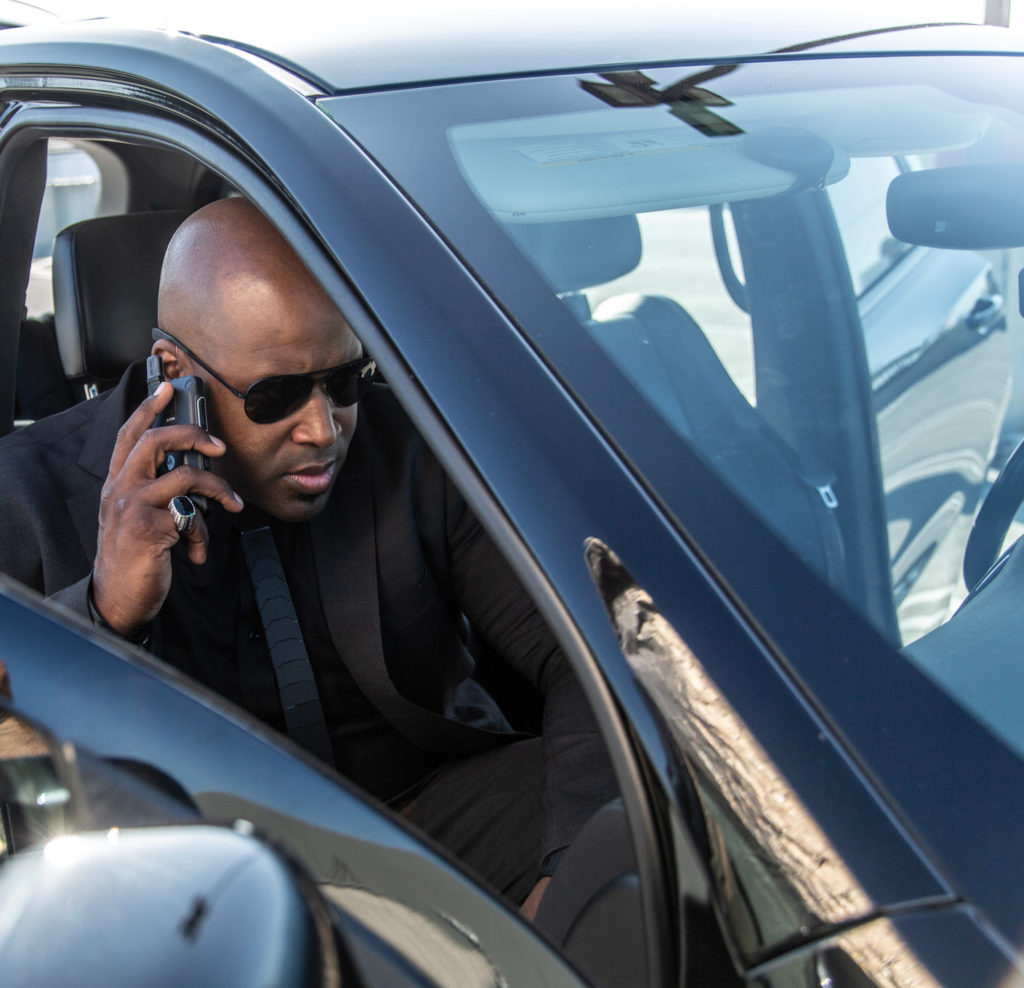
You must be able to flow with your team and client while keeping the stress low and making it look like you planned for…
Do you feel self-defense is stigmatized in the United States?
Byron Rodgers: It does bring a little bit of a stigma. I’m not sure this is accurate in terms of what other people have experienced, but when someone says “self-defense” I’m picturing like a mom in her workout class with some sweats and a rape whistle and there’s an instructor who’s like, we’re gonna learn self-defense today blowing the whistle and doing some kicks. I think true self-defense is so terribly important. I commend those who go out and study it, but am really scared for them being able to find good information and good trainers with things that’ll help them in real life. Protector Symposium and Protector Nation use trainers that’ve been there, done that, and have credentials with real-world experience to back it up.
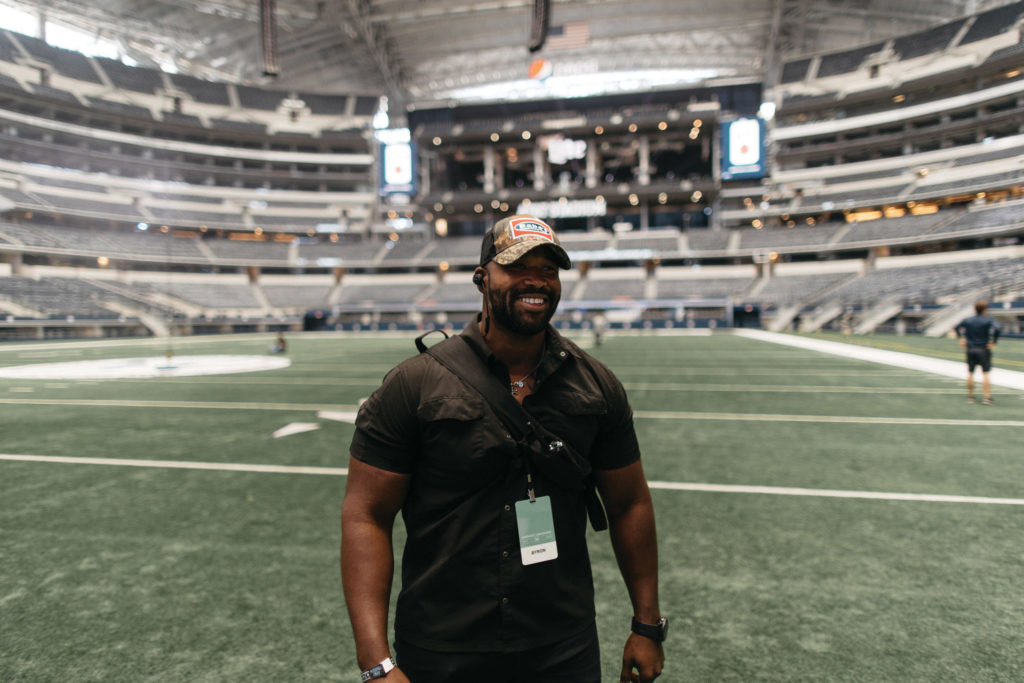
“I’ve lost more friends to suicide since we’ve been out of the Marine Corps then we lost in combat because…
Given what’s happened in 2020, what security threats do you expect to increase that the average citizen should learn to protect themselves against?
Byron Rodgers: I think we’ll see more civil unrest just because it was dealt with so passively, and was even subversively validated in my opinion. I think we’ll see more looting and behavior like this. That’s something everyone should be prepared to deal with. If you’re in your car driving somewhere, you come upon people blocking the road, you’re boxed in, they might say they stand for equality, but are about to jump you because you’re the wrong color or have the wrong bumper sticker on your car. You could find yourself in an ambush situation very quickly with a high degree of danger because we all know groupthink is an issue.
The other thing I’d really warn people about is social media and the way that predators in regard to human trafficking and kidnapping are using social media. A lot of civilians are oblivious on how to behave and how not to make themselves an attractive target on social media. It’s like a candy shop. With my podcast, every single one of the people I interview who have anything to do with kidnapping or human trafficking will tell you that your biggest vulnerability is your social media, even if you think you’re a ghost and the most off-grid social media guy out there, well guess what? Someone came over for a barbecue and they’re posting pictures of your house, you, your kids, and inadvertently geo-tagging it. Now anyone who wants to find you and yours, or wants to steal your gun while you’re at work that may have been posted, can get up in your business.
Byron Rodgers Bio
Hometown: Orange, CA
Family status: Married
Childhood idol: Julius Caesar
Recommended reading list:
- As a Man Thinketh by James Allen
- 48 Laws of Power by Robert Greene
- The 50th Law by Robert Greene
- The 4-Hour Workweek by Timothy Ferriss
- Laws of Success: 12 Laws That Turn Dream Into Reality by Les Brown
- Think and Grow Rich by Napoleon Hill
- Maps of Meaning by Jordan Peterson
- Man’s Search for Meaning by Viktor Frankl
Favorite movie: Inception
Beer or wine? Vodka, but if I had to choose, wine.
Boxing or MMA? MMA
Favorite quote: “In the end, all that matters is what you can achieve.”
Military experience: Just a grunt turned private security professional.
Describe yourself in three words: Perspective, Driven, Fluid
URL: www.byronrodgers.com
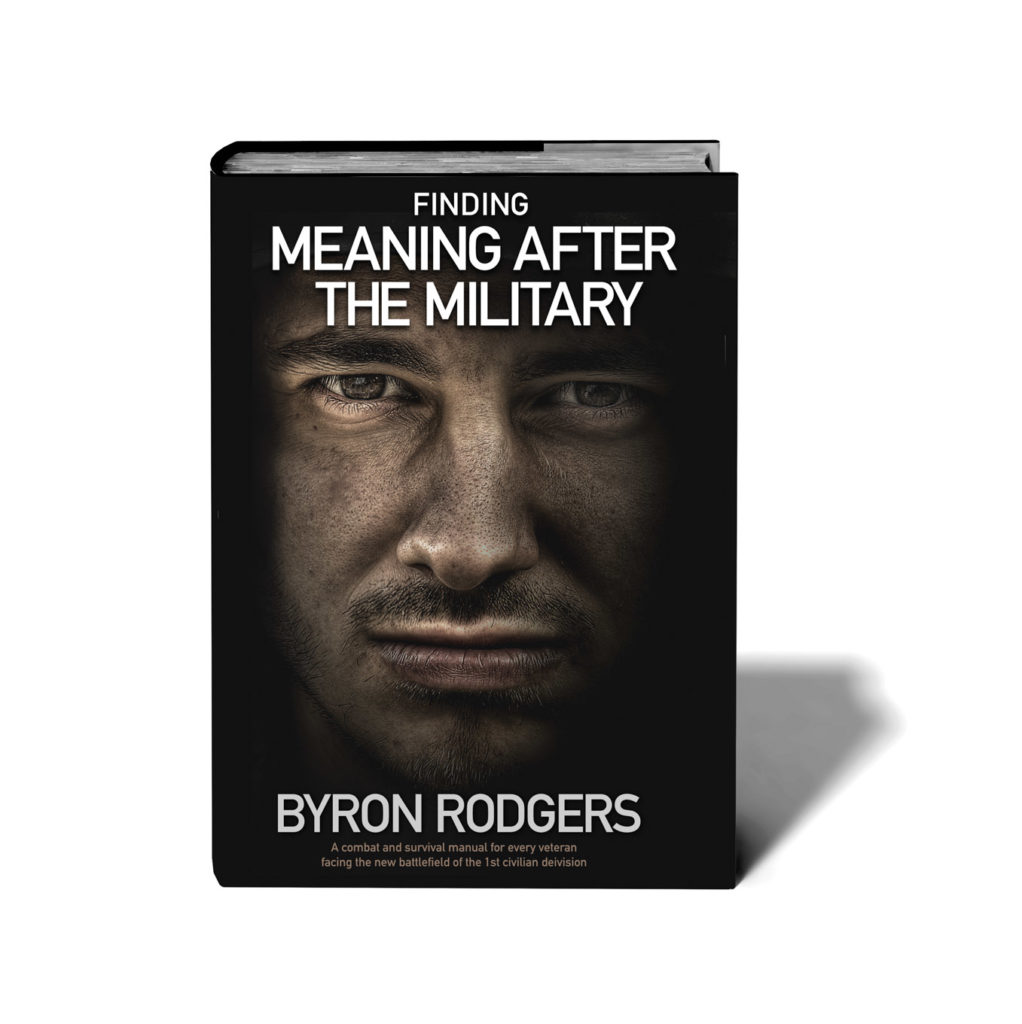
Byron Rodger’s book is available HERE on Amazon for $19.99. Your purchase helps OFFGRID.
More Survivor Spotlights on OFFGRID:
- Brady Pesola: Ensuring a Safe Passage for Veterans.
- John Nores: The Patron Saint of Mother Nature.
- Jeff Franklin: The Commando Whisperer.
- Tom Marshall: The Inside Man.
- Mike Glover: Redefining Survival.
Related Posts
The post Byron Rodgers: Experience is the Teacher of All Things appeared first on RECOIL OFFGRID.



